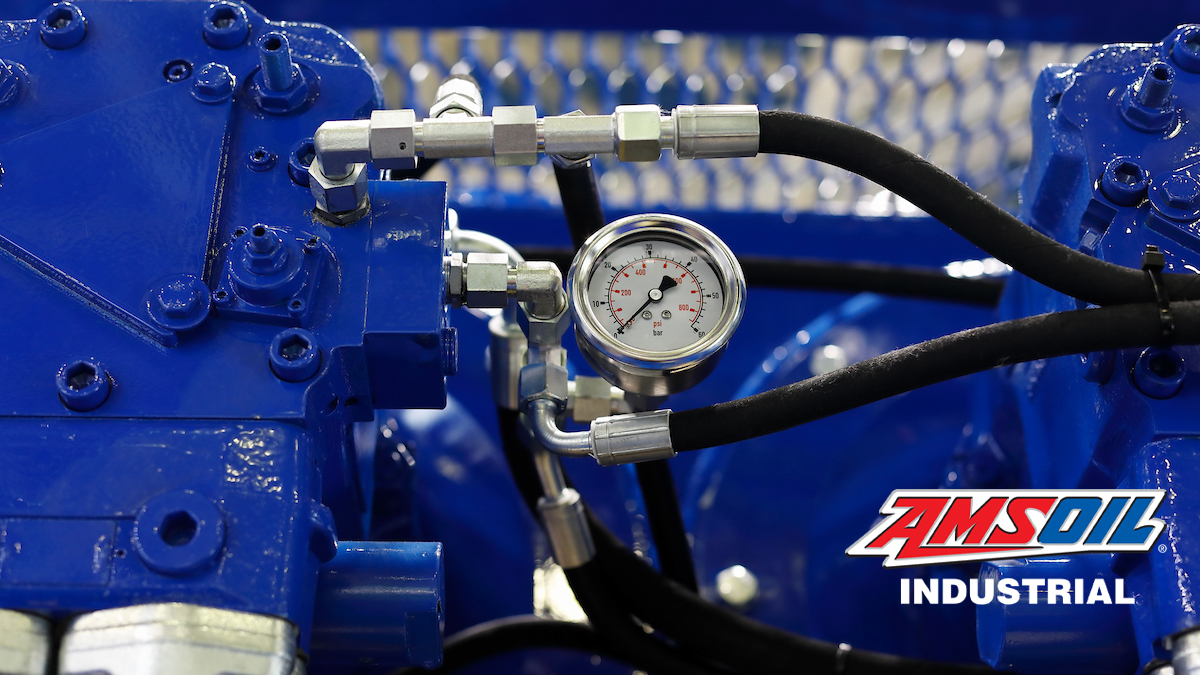The Critical Role of Compressor Lubricants
Efficiency and productivity are paramount in industrial manufacturing, so proper machinery maintenance is crucial for success.
Compressors operate in harsh environments characterized by high temperatures, heavy loads and contaminants such as dust, debris and moisture. These conditions pose significant challenges to the compressor, leading to accelerated wear, corrosion and potential breakdowns that can significantly impact their efficiency and longevity. Quality lubricants and diligent oil maintenance practices are required to mitigate these challenges.
Quality Lubrication Matters
Lubricants must perform basic vital functions, such as reducing friction, dissipating heat, sealing clearances and preventing corrosion. While many oils claim to perform those tasks, compressor-lubricant choice is important due to the demanding operating conditions that compressors endure. According to research conducted by Noria, using lubricants with the appropriate viscosity and additives can extend compressor life by up to 20% and reduce maintenance costs by 5-10%.
High-quality AMSOIL Industrial compressor oils are specifically formulated to withstand extreme temperatures, resist oxidation and maintain their lubricating properties in the presence of contaminants. Low-quality compressor oils leave excessive deposits in the compressor that build up over time and impair performance. These performance-robbing deposits can be removed by switching to high-quality AMSOIL Industrial compressor oil.
The Impact of Oil Contamination
One of the primary threats to compressor performance and longevity is oil contamination. In industrial environments, contaminants such as water, dirt and wear particles can infiltrate the lubrication system, compromising the oil’s effectiveness and leading to accelerated component wear. In fact, up to 80% of equipment failures are attributed to contaminated lubricants according to Reliable Plant, making contamination control a critical aspect of maintenance practices.
To mitigate the risks associated with oil contamination, implementing proactive measures such as proper storage, filtration and regular oil analysis is essential. Establishing appropriate lubrication intervals and routine oil analysis as part of your maintenance program helps identify potential issues before they escalate into costly problems. Implementing a comprehensive lubrication management program streamlines the maintenance process, maximizes equipment uptime and minimizes costly maintenance and downtime.
Compressor Lubricant Selection
Here are some key factors to consider in selecting the right lubricant and maintenance program for your specific application:
-
Base Oil: Synthetic lubricants offer superior performance in extreme temperatures and high-pressure environments compared to mineral oils.
-
Viscosity: The viscosity grade determines the oil’s thickness and flow to ensure proper lubrication under specific operating conditions.
-
Additives: The additive package enhances the oil’s performance in key areas like anti-wear, anti-foam and corrosion protection.
-
Filtration: A filtration system removes contaminants from the oil, extending the life of the oil and the system.
-
Monitoring: Routine monitoring of oil levels, temperature, pressure and contaminants helps proactively identify potential problems.
Positive Effects of Quality Lubrication
Investing in quality lubricants and a proactive oil maintenance program leads to long-term operational benefits and cost-savings.
-
Reduced Maintenance Costs: Proper oil care significantly reduces maintenance costs associated with unplanned downtime and catastrophic failures, including equipment repairs or replacement and downtime.
-
Improved Equipment Lifespan: Quality compressor oil translates to longer equipment lifespan, maximizing the return on your investment.
-
Increased Reliability: Consistent equipment performance ensures uninterrupted production and avoids costly operational delays and disruptions.
-
Enhanced Energy Efficiency: Optimized lubrication reduces friction and heat generation, leading to improved energy efficiency and lower operating costs.
Prioritizing lubrication excellence is not merely a routine maintenance task, but a strategic imperative for enhancing industrial efficiency and reducing operational costs. By recognizing the importance of quality lubricants and implementing diligent oil maintenance practices, industrial facilities can mitigate the challenges posed by harsh operating environments and extend the longevity of their equipment.
However, verifying oil compatibility is critical when changing compressor oil, as potential problems include excessive deposits that have built up over time when using low-quality compressor oils. The excellent cleaning action of AMSOIL Industrial synthetic compressor oils may loosen or remove existing performance-robbing deposits left by the previous oil. To ensure success, our Certified Lubrication Engineers recommend following proper compressor oil changeover procedures and equipment monitoring with routine oil analysis.
Following these tips and reaping the results can help you stop viewing oil as a commodity and start viewing it as an asset. For more information on AMSOIL Industrial compressor oils, selection criteria and equipment compatibility, contact an AMSOIL Industrial Certified Lubrication Engineer or visit Air Compressor Oil for Industrial Applications – AMSOIL Industrial
